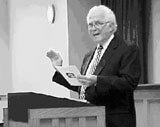Two state courts send marriage ballot questions to voters this fall
Courts in two states where voters may be asked to amend their state constitutions to ban any legal recognition of same-sex relationships have rejected attempts to keep those issues off the ballot.
Ruling on September 2 in Louisiana and September 3 in Michigan, the courts set aside arguments that ambiguous or misleading proposals cannot not be placed before the voters.
The Louisiana case, decided by the state Supreme Court, presented a variety of grounds to forestall the voting, now scheduled to take place on September 18 along with the state’s primary elections for local and federal office. Perhaps the most important ground was that the proposed amendment asks voters to address multiple questions through a single “yes” or “no” vote.
“Marriage in the state of Louisiana shall consist only of the union of one man and one woman,” the proposed text reads. “No official or court of the state of Louisiana shall construe this constitution or any state law to require that marriage or the legal incidents thereof be conferred upon any member of a union other than the union of one man and one woman. A legal status identical or substantially similar to that of marriage for unmarried individuals shall not be valid or recognized. No official or court of the state of Louisiana shall recognize any marriage contracted in any other jurisdiction which is not the union of one man and one woman.”
By voting “yes,” a person would be agreeing to two distinct things—that Louisiana would not allow same-sex marriages to be performed in the state or recognize those performed elsewhere, and that Louisiana would not confer any of the “incidents of marriage” on any union “other than the union of one man and one woman.” A voter who believed that same-sex couples should be accorded some sort of legal status, such as domestic partnership—which exists under New Orleans city ordinance—or a civil union, but is opposed to same-sex marriage, would be forced to sacrifice one of their positions in order to support the other.
The Louisiana Supreme Court did not issue a written opinion explaining its ruling, but Chief Justice Pascal F. Calogero, Jr., wrote a brief concurring opinion explaining his own vote. Calogero found that there was no specific authority under state law for the courts to intervene and stop a vote on a proposed constitutional amendment placed on the ballot by the legislature, as this one was. He agreed with the lower courts that the attempt to raise constitutional objections was premature, since state law provides for legal challenges within ten days of election results being announced.
Calogero, however, acknowledged that the objection raised by the amendment’s opponents was a “serious argument,” noting that the state Constitution specifically prohibits “the presentation of more than one object in a single amendment.” Thus, the chief justice appeared to be inviting a legal challenge to the amendment if the voters approve it.
In Michigan the proposed amendment was put on the ballot through petitioning by Citizens for Protection of Marriage (CPM), which collected about 500,000 signatures. Only 317,757 signatures were needed to place the amendment on the ballot, and random sampling indicated that more than 400,000 of the signatures collected were valid. However, the Board of State Canvassers deadlocked 2-2 over whether to certify this proposal. The two Republicans on the Board voted to place the amendment on the ballot, but the Democrats voiced concern that its language could be interpreted to ban domestic partner recognition and even prohibit health insurers from providing benefits to unmarried couples. The state Director of Elections had proposed the following language, based on the CPM’s petition: “A proposal to amend the state constitution to specify what can be recognized as a ‘marriage or similar union’ for any purpose. The proposal would amend the state constitution to provide that ‘the union of one man and one woman in marriage shall be the only agreement recognized as a marriage or similar union for any purpose. Should this proposal be adopted?”
CPM filed suit after the Board twice deadlocked on the ballot language. An appeals court agreed with CPM, finding that the Board has a limited and technical role, to make sure that there are enough valid signatures.
“It is… well established that a substantive challenge to the subject matter of a petition is not ripe for review until after the law is enacted,” the court ruled, echoing the views of the Louisiana chief justice.
The court ordered the Board of State Canvassers to accept the proposed language and place it on the ballot.
The question could yet go to the Michigan Supreme Court.
Many observers believe that the presence of these measures on the ballot, especially in a swing state such as Michigan, may benefit Pres. George W. Bush’s re-election campaign.



































